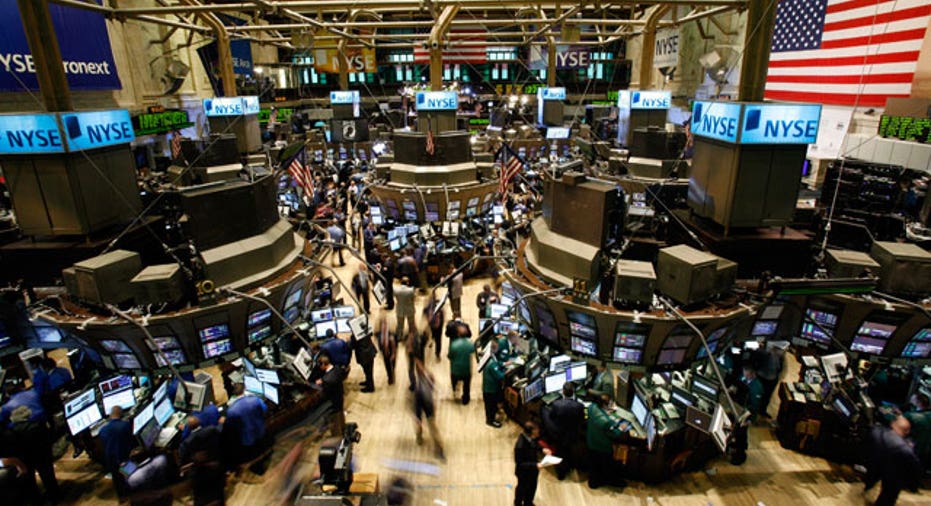Sad But True: NYSE Takeover a 'Good Deal'

Forget national pride and 220 years of history -- the purchase of NYSE Euronext, the parent company of the New York Stock Exchange, by European trading powerhouse Deutsche Boerse AG is widely viewed as a winner for everyone involved.
Given the “hyper-competitive” environment for trading volume among an ever-growing number of securities exchanges, the move was nothing short of necessary for NYSE Euronext, said Thomas Caldwell, chief executive of investment firm Caldwell Securities.
The NYSE’s owner “has to merge to get greater volume and greater efficiencies,” said Caldwell. “They’re really forced to do this.”
Meanwhile, Geoffrey Bobroff, a long-time consultant for the mutual fund industry, said the potentially improved economies of scale created by the deal can be expected to reduce commission costs for big institutional traders.
Deutsche Boerse said Tuesday it will acquire NYSE Euronext (NYSE:NYX) in an all stock deal valued at $9.53 billion. The German-based exchange will control 60% of the newly combined company. Deutsche Boerse’s chief executive Reto Francioni will take the title of chairman and NYSE Euronext’s Duncan Niederaurer will serve as CEO.
In a statement released jointly by the two companies, it was announced that Deutsche Boerse will name 10 of the 17 seats on the new company’s board, effectively giving the Frankfurt-based exchange operator control of the direction of the newly formed firm.
That has rankled some in the U.S., who fear that the iconic NYSE, affectionately known for decades as the ‘Big Board,’ is all but disappearing in a corporate takeover by a foreign company.
It’s still uncertain what the new name of the combined company will be. That too is sure to be a contentious debate.
Standing in the way of the deal are potential regulatory hurdles both in the U.S. and Europe. But those are seen as manageable.
As for the perception of a diminished role for the once-dominant NYSE on the global financial landscape, that’s seen by many as old news.
“There’s always a sense of pride when you’re talking about the New York Stock Exchange, but that train has already left the station,” said Caldwell, whose firm was once the second largest owner of NYSE seats.
Caldwell noted that the NYSE has operated jointly with a European company since merging with Euronext in 2007.
Of far more importance, both to shareholders of the merging companies and potential trading clients, is the potential savings and efficiencies achieved by combining the two entities, said Caldwell.
“These are two very well run businesses and who knows what the final ownership will look like. But I think the question to ask right now is, why,” he said.
The answer is that an atmosphere of “hyper-competition” has emerged in the past decade as numerous smaller electronic platforms have sprung up in large numbers, providing cheaper and less regulated markets for trading all manner of securities. According to Caldwell, that atmosphere has forced exchange operators to seek out partners to share costs and attract greater volume.
With the NYSE Euronext merger, Caldwell predicted a “significantly more efficient” combined company. For their own part, the companies today predicted savings after three years could reach $400 million a year.
NYSE Euronext is the largest U.S. stock exchange, handling about one-fourth of all equity trades. Deutsche Boerse, meanwhile, is a dominant player in the increasingly lucrative derivatives trading market in Europe.
The merged exchange operator will list corporations with about $15 trillion in value, more than any other exchange in the world. But all indications are that the merger is looking to tap into the increasingly lucrative market for trading derivatives.
Investors use derivatives such as futures and options contracts to hedge risks and to lock in prices on commodities ranging from orange juice to oil.
James J. Angel, an associate professor of finance at Georgetown University, said the joint firm will be better positioned to compete with the Chicago-based CME Group (NYSE:CME), the biggest player in the U.S. derivatives trading market.
In the wake of the recent financial crisis, financial reform legislation was passed by Congress that pushes more derivatives trading to exchanges regulated by government watchdogs such as the Securities and Exchange Commission and the Commodity Futures Trading Commission.
The combined Deutsche Boerse and NYSE Euronext hopes to cash in on that dynamic, as profit margins on derivatives trading is much higher than trading stocks.
According to the statement released by the companies, about 37% of revenue at the merged company will come from derivatives trading and clearing, which would make it the largest of all the firm’s units based on 2010 revenue.
Angel noted that all exchanges are now basically technology companies and that trading platforms can accommodate many different kinds of securities. In the event of a merger, all that needs to be done is to increase the ability to handle more volume.
Meanwhile, “there are all kinds of redundancies that you can get rid of,” he said. “It’s the right thing for them to do. The synergies involved make this a good deal.”
Angel said nationalistic pride isn’t likely to be an issue for existing shareholders and potential trading clients.
“Most of the shareholders -- big institutional investors such as pension funds -- are global investors anyway, and the only thing that matters to them is that (the new company) produces cash flows.”
“Besides,” he added, “I don’t see this as a company that’s really domiciled anywhere.”



















